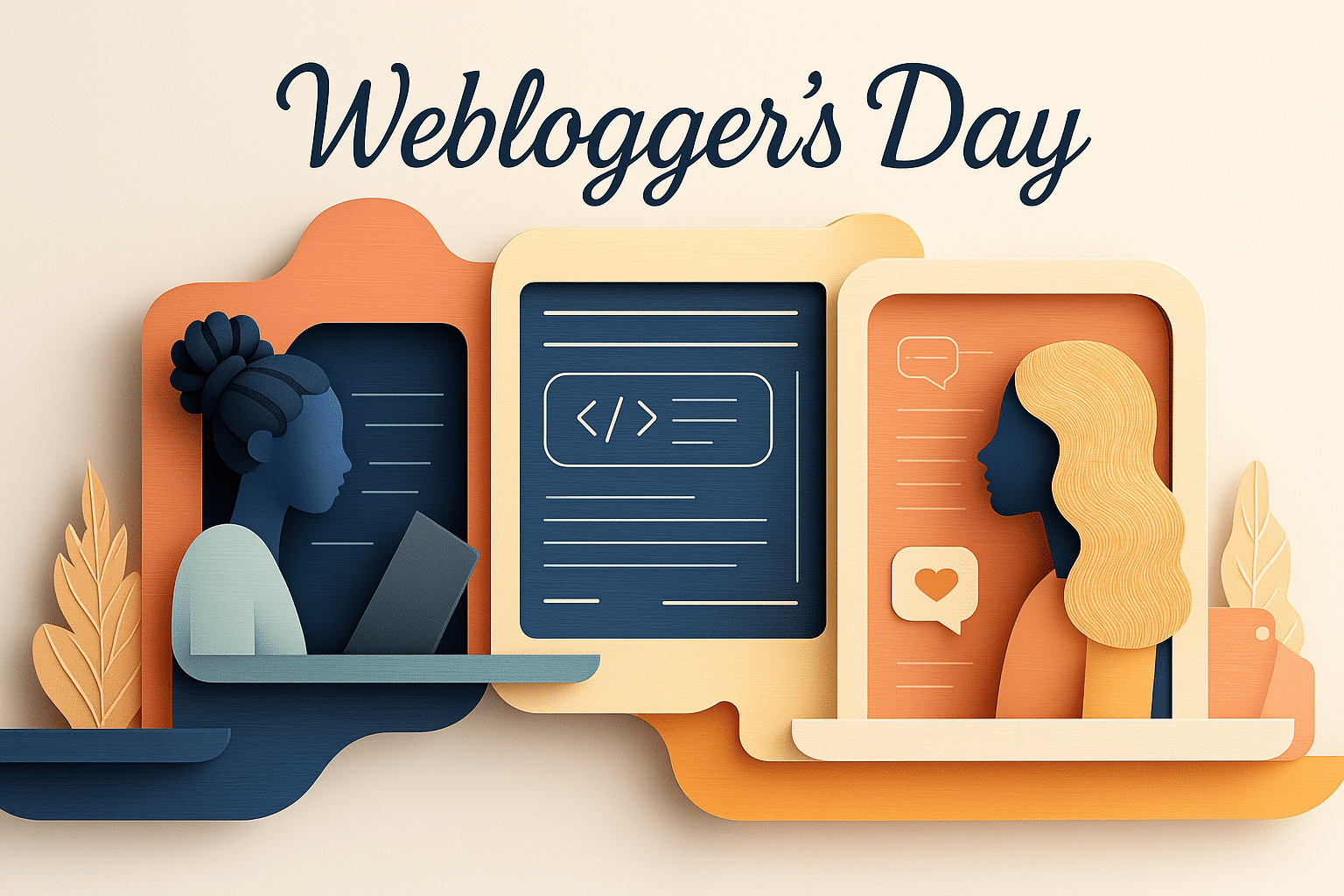What is International Weblogger’s Day?
International Weblogger’s Day is held every year on June 14 and is celebrated worldwide. This day highlights the impact of weblogs in digital culture and honors the role of bloggers as storytellers, commentators, and community builders. Weblogs, also known as blogs, have transformed how people document ideas, share opinions, and connect with others across the globe. The day encourages reflection on how digital publishing shapes public discourse and personal expression. It’s a moment to recognize the power of individual voices in shaping the internet.
This day is often used to explore how blogging has evolved from personal diaries to platforms that influence news, education, and activism. Bloggers across various fields take time to revisit their first posts, evaluate their growth, and interact with readers. Weblogger platforms also use this opportunity to showcase notable blogs or run features about long-standing creators. For many, blogging remains a powerful tool for freedom of speech and connection. International Weblogger’s Day creates space to celebrate that legacy and its ongoing relevance.
It is important not to confuse this day with Blogger Day, which is usually a more general celebration of the profession of blogging. Blogger Day often emphasizes influencers and monetized content creation. International Weblogger’s Day, on the other hand, focuses on the original essence of the weblog: personal voice, transparency, and long-form reflection. It celebrates people who publish thoughtful content regularly, even if their audience is small. The core values of this day remain authenticity, independence, and the personal side of digital writing.
History and Origin
International Weblogger’s Day started in 2004 as an initiative by a group of online writers who wanted to promote blogging culture. It emerged at a time when blogging was gaining traction as a serious communication tool. Unlike traditional journalism, weblogs offered room for raw opinion, lived experience, and niche expertise. The day was created to acknowledge the impact of this format and the communities built around it.
The early celebrations were informal, often involving online posts reflecting on why people blog and what it means to share publicly. Over time, forums and blog networks began to recognize the date and spread the word. With the rise of social media, blogging changed, but the day remained an anchor for those who still value long-form expression. It provides a yearly moment for bloggers to reconnect with their initial reasons for writing.
As blogging evolved, so did the meaning of the day. Today, International Weblogger’s Day is embraced by independent writers, cultural critics, tech bloggers, and academic diarists alike. The day acts as a reminder of the internet’s capacity for thoughtful communication. It also gives attention to lesser-known blogs that do not follow trends or chase algorithms. The spirit of the original weblog still thrives under this observance.
Who participates in International Weblogger’s Day?
- Writers with personal blogs: People who reflect on daily life, thoughts, and creative ideas through long-form posts.
- Online journalists: Individuals who use blog formats to analyze news and media in a more opinion-driven style.
- Academic thinkers: Scholars who use blogs to share research ideas, theories, or commentary in an accessible way.
- Hobby bloggers: Creators who write about interests like books, cooking, or travel without commercial goals.
- Blogging communities: Platforms and forums that support dialogue among people who value slow, personal writing.
Slogans and Themes
Themes for International Weblogger’s Day often focus on reflection, authenticity, and personal voice. Some yearly editions have invited bloggers to explore the theme of “digital footprints” or the idea of “publishing with purpose.” One edition encouraged writers to revisit their earliest blog entries and comment on their evolution. The slogans tend to promote thoughtfulness over virality, and connection over influence. This aligns with the day’s core values: freedom, creativity, and open-ended conversation.
Colors, Symbols and Patterns
Colors
- Blue: Symbolizes openness and digital communication.
- Black: Represents ink, thought, and the timeless act of writing.
- Green: Suggests growth and the evolving nature of long-term blogging.
Symbols
- Keyboard: Stands for writing and the tools used to shape digital thoughts.
- RSS icon: A nod to the blog era when syndication marked readership and connection.
- Pen: Represents expression, editing, and the crafted voice behind each post.
Patterns
- Code snippets: Refer to the technical foundation of early weblogs.
- Speech bubbles: Visualize conversation and interaction between writer and reader.
- Text blocks: Evoke the structured yet free nature of blog entries.
Most used hashtags
- #WebloggersDay
- #BlogCulture
- #WriteToConnect
- #DigitalVoices
- #AuthenticWriting
How do you celebrate International Weblogger’s Day?
- Publish a reflective blog post: Share why you started blogging or what the journey has taught you.
- Revisit old entries: Look back at early posts to see how your voice or focus has evolved.
- Comment on a favorite blog: Let another writer know how their work has impacted you.
- Join a blogger forum or event: Connect with others who value digital writing spaces.
- Go offline and write: Use the day to draft something without distraction, then post when you’re ready.
Why is International Weblogger’s Day important?
International Weblogger’s Day matters because it honors a part of internet history that still lives on. Before the dominance of social media, weblogs were key spaces for dialogue and exploration. The day gives visibility to writers who may not have large audiences but still contribute meaningfully. It defends the idea that slow, honest writing has a place online. The blog format remains a quiet, enduring force for expression.
The day also pushes back against pressure to create fast, viral content. It celebrates people who care more about words than algorithms. The blog is not dead. It has simply become quieter and more intimate. This observance reminds people that it’s still possible to speak clearly and personally on the web. For those who keep writing, this day offers recognition and encouragement.
Features
- Arts Literature and Music
- Hobby and Leisure
